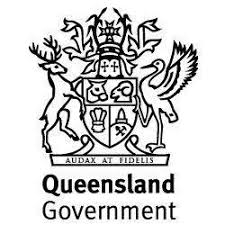A query from a participant in a recent club governance workshop I ran gave me a chance to reflect on the fact that our beliefs really do shape how we act. This is just as true if we believe myths and lies as it is if we believe the truth.
There’s a rather funny story of a guy who called the police when his shed was being robbed. He said to the operator, “There are two robbers in my shed right now! If you hurry, you’ll catch them!” The operator replied that there were no police in the area at that time, but someone should be there in a couple of hours.
A short while later, the guy called back and said, “It’s me again. No need to hurry now. I shot both the robbers.” Within a few minutes, there were four police cars and a police helicopter on the scene. The police arrived so fast that they caught the robbers in the act.
When one of the police officers said to the guy, “I thought you said you shot the robbers,” he calmly replied, “I thought you said there were no police in the area...”
Notice how it was the belief that this guy had shot two people that spurred the police into action, even though it wasn’t true?
The recent club governance workshop I ran was the third in a series of training workshops for sports clubs. The purpose of this workshop series was to teach volunteers how to apply better business thinking to improve the viability of their clubs.
One of the attendees noticed that during all three of the sessions, I took the time to reiterate that ‘not-for-profit’ does not mean ‘no-profit’. So many volunteers, especially at grass roots level, have ‘absorbed’ the myth that they are not allowed to make a profit, that they run their clubs on paper-thin margins. Just like when the police thought that the guy had shot the robbers, it’s the unfounded belief that clubs aren’t allowed to make money that drives the sort of behaviour that means they don’t.
What the term ‘not-for-profit’ really means is that the organisation is unable to share its profit among its members, as if they were shareholders of a for-profit company. There’s no limit to the amount of income or profit a not-for-profit organisation can make and no limit to the amount of money it can have saved in the bank. It’s just that when that money is spent, it is put towards delivering the organisation’s purpose. I therefore think that ‘not-for-profit’ is a bit of a misnomer and I’d love to change it to something like, ‘not-for-the-individual-gain-of-its-members’, but I think that ship has sailed…
My advice then? Understand what the term ‘not-for-profit’ really means. When your understanding changes, so can your beliefs in your ability to run a better not-for-profit business. It’s this belief that will change your actions, which will lead to better outcomes all round.
Contact CPR Group if your committee needs governance advice today.




























